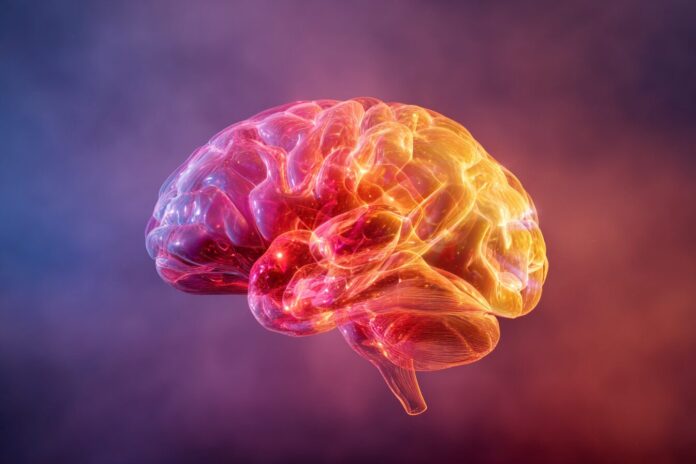Understanding Infantile Amnesia: Why Early Memories Disappear
Most adults can’t recall anything from their early years—especially not moments from infancy. This phenomenon, known as infantile amnesia, has puzzled scientists for decades. Researchers have long wondered why, despite the brain’s ability to form memories, our very first experiences fade with time.
Because memory storage is an intricate process, many experts propose that this early forgetting is a natural part of brain maturation. Most importantly, the way memories are encoded in infancy differs significantly from later stages in life. Therefore, the early memory traces, though formed, are altered or lost as cognitive structures evolve. In addition, the role of language development and social interactions significantly affects how these early memories are ultimately stored or even discarded.
Your Brain’s Early Memory Factory: The Hippocampus
The human brain forms memories in a region called the hippocampus—a crucial structure hidden deep within the brain. Because the hippocampus is responsible for creating episodic memories, it directly impacts how we recall events, people, and places. Most importantly, this brain region is active even in infancy, highlighting its fundamental role in early development.
Furthermore, groundbreaking studies have revealed that the hippocampus in infants demonstrates patterns of activity during memory formation. For instance, new studies using fMRI technology have shown active encoding in babies as young as 4 months old. Therefore, while the hippocampus is immature, it is still capable of processing sensory experiences, and this early activity sets the stage for future cognitive abilities. In essence, it provides the building blocks for learning and understanding the world.
New Science: Babies Do Store Memories—Just Not Forever
Recent research has dramatically shifted our understanding of infant memory formation. Using state-of-the-art techniques, scientists at Yale University have monitored infants during memory experiments. Because babies were exposed to various stimuli such as unfamiliar faces, objects, and scenes, researchers observed distinct patterns of hippocampal activity. This not only confirms that babies are making memories but also underscores that these experiences are actively being encoded [source], [source].
Besides that, the study illustrates fascinating individual variability among infants. Because some infants demonstrate greater encoding activity than others, researchers believe these differences may later influence personality, learning styles, and even social behaviors. Most importantly, this breakthrough reinforces that even the youngest among us are laying the neural groundwork for lifelong learning.
Why Can’t Adults Recall Early Childhood Memories?
It is intriguing that while babies store experiences, most adults cannot retrieve memories from their first few years of life. Because the brain undergoes significant reorganization during childhood, the pathways necessary for long-term memory retrieval are altered. Therefore, the memories that once existed may become inaccessible over time. Most importantly, this process is not indicative of a failure in memory, but rather a transformation in how our brains manage and archive experiences.
Furthermore, changes in language skills and neural connections between brain regions further contribute to this phenomenon. Because infants lack a fully developed language system, their experiences are often stored in non-verbal forms. As language becomes a dominant part of cognitive processing, early non-verbal memories may not easily convert into words. Thus, while the memory traces are there, the ability to consciously access them diminishes as we grow [source], [source].
What Does This Mean for Childhood Learning?
Although adults rarely remember their infancy, the early experiences play a crucial role in shaping their future. Most importantly, babies begin learning from the very first moments of life, forming memories that impact later behavior and learning. Because early social interactions and basic emotional bonding are encoded, these processes lay a strong foundation for cognitive and social development.
Therefore, even if you cannot recall being a baby, your brain was very much busy at work. The early encoding of experiences, from recognizing caregivers to developing language skills, supports later learning and personality formation. Moreover, this process creates a framework within the brain that guides future learning, as supported by insights from recent psychological studies.
New Perspectives and Future Directions in Memory Science
Most importantly, recent neuroimaging advancements allow scientists to observe awake infants and monitor real-time brain activity with unprecedented clarity. Consequently, further research is expected to shed light on how genetic factors and environmental interactions contribute to memory formation and storage in early life. Because these studies utilize cutting-edge imaging techniques, our understanding of early memory processing is evolving rapidly.
Because research continues to explore the intricate dynamics of the infant brain, new models might emerge that explain why some memories persist while others fade. Furthermore, more nuanced insights into the interplay between neural networks and memory consolidation will help refine educational approaches and early childhood interventions. In this way, understanding infant memory not only satisfies scientific curiosity but also has practical implications for enhancing developmental outcomes.
Conclusion: The Invisible Power of Early Memory Formation
In summary, although you may not recall your earliest days, your brain was actively engaged in forming memories that support later growth. Because these early memories shape your cognitive and emotional development, they remain fundamental to who you become. Most importantly, ongoing studies and technological innovations continue to enlighten us about these hidden processes.
Therefore, while the details of your infant experiences are lost to conscious recollection, the brain’s early memory encoding plays an essential role in your lifelong learning journey. For more detailed insights and recent discoveries, consider exploring further research through trusted sources like Science.org and WebMD.
References
- Science.org: Pioneering Study Scans Babies’ Brains as They Form Memories
- The Scientist: Babies Form Memories. Why Do Adults Forget Them?
- WebMD: Breakthrough Study Shows Babies Can Form Memories at Age 1
- APA: Why Can’t You Remember Being a Baby?
- Communicating Psychological Science: Memories as an Infant—Real or Fake?



